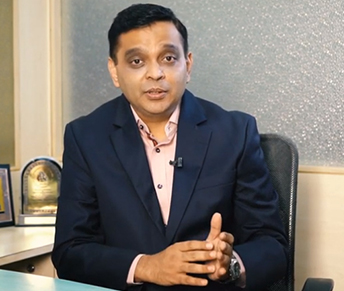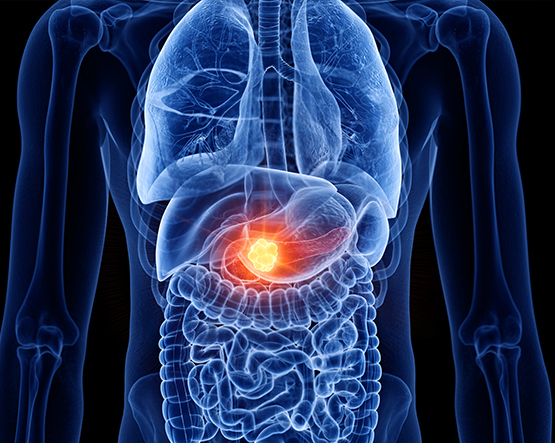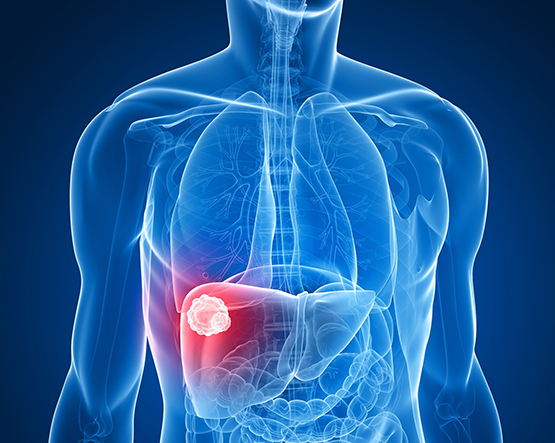Pancreatic Cancer
Pancreatic cancer is a disease in which cancerous cells forms in the tissues of pancreas. Pancreatic cancer is one of the leading cause of cancer deaths in the world and it’s incidence is on the rise in developing countries like India. Incidence of pancreatic cancer in India is 0.5-2.4 per 100000 men and it is 0.2-1.8 per 100000 women.
Signs and symptoms:
- Pain in the upper abdomen and back
- Loss of appetite and weight
- Yellowish discolouration of eye and skin (jaundice)
- Itching
- Fatigue
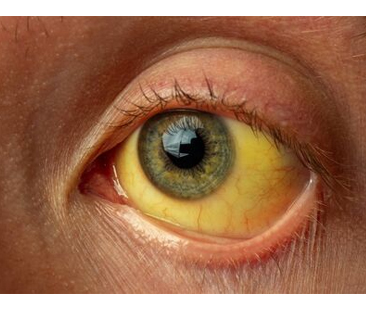
Risk factors:
- Smoking
- Alcohol
- Chronic pancreatitis
- Obesity
- Old age ( >65 yrs)
- Family history of pancreatic cancer
Diagnosing pancreatic cancer
- Physical examination : Your doctor will examine your eyes and skin to look for signs of jaundice. Your doctor will also examine your abdomen to look for changes caused by the cancer.
- Blood tests: Complete blood count, liver function test, renal function test, coagulation profile, CA19-9 (Tumor marker)
- Radiological imaging: CT scan, MRI scan, PET-CT, Ultrasound of the abdomen, ERCP. In case of severely jaundiced patient, doctor might refer you to medical gastroenterologist for a ERCP and stenting to decompress the bile duct prior to the surgery. Plastic or metal stents will be placed in your bile duct to relieve the obstructive jaundice.
- Biopsy: Biopsy is not mandatory to diagnose pancreatic cancer. Most of the time diagnosis is confirmed by imaging tests. However, a small subset of patients with pancreatic cancer may present without jaundice. In these patients, biopsy is required to confirm the diagnosis.
Treatment Options
Treatment options available for pancreatic cancer
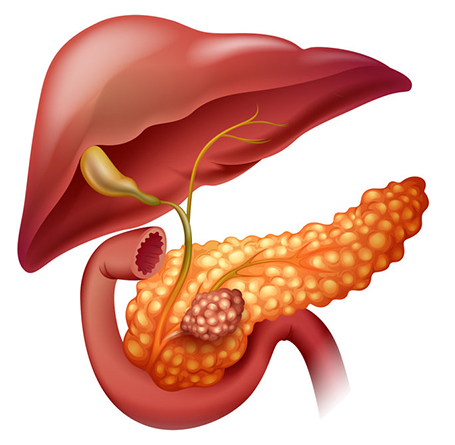
Surgery
Surgery for a pancreatic cancer depends on the location of the tumour Surgery for pancreatic head cancer: If the cancer is located in the head of the pancreas then the patient will require a Whipple’s procedure (pancreaticoduodenectomy). A close look at the scans will help the surgeon understand of the tumor is resectable or not. Often the main blood vessels going to the liver or intestines are affected by the cancer rendering it inoperable. Tumors in the body or tail of the pancreas need a distal or subtotal pancreatectomy. This is often done by laparoscopy or robotic techniques to minimize stay and enable faster recovery.
Radiotherapy for pancreatic cancer
Radiation therapy in pancreatic cancer is used as a neoadjuvant treatment in order to shrink the cancer to enable safer surgery. It is used in a post-operative setting in cases where the margins are positive.
Ablation
Chemotherapy has been shown to extend life for people with pancreatic cancer. It is often combined with surgery or radiation therapy for tumors confined within the pancreas. It is used as a primary treatment for inoperable cancers of the pancreas due to local vessel invasion or distant spread. At times, chemotherapy is used for borderline resectable cases to shrink the tumor and enable better surgery.
Combination of the above treatments
Surgery For Pancreatic Cancer
Whipple’s pancreaticoduodenectomy
Whipple’s procedure is a technically very demanding surgery for cancers of the head of the pancreas, lower bile duct, duodenum, or the periampullary region.
The surgeon will remove the head of the pancreas, duodenum, gall bladder, common bile duct, and regional lymph nodes.
Following the removal surgeon reconnects the remaining pancreas, bile duct and stomach with the small intestine(jejunum) . This is one of the most complex operations . At times, the portal vein is also resected and joined back when affected. Post-surgery patient may be kept in icu for monitoring. The recovery period is usually between 6-10 days after surgery. Whipple’s procedure is at times associated with complications. Complications include a pancreatic joint leak or bleeding, infection, fluid collection inside the abdomen, which might increase the hospital stay and expenses. Complication rates have come down with a better understanding of the disease and improved technical skills. Complication are fewer when its done by a experienced surgeon and in a high-volume centre.
Radiofrequency ablation(RFA) and Microwave ablation (MWA) for liver metastasis can be used in cases where surgery is not possible of the lesions are too deep-seated.
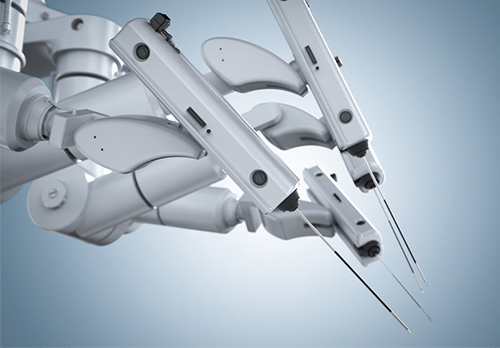
Distal or subtotal pancreatectomy
This is a resection of the body or tail of the pancreas for a tumor in any of these regions. It may need an associated splenectomy. Your doctor may recommend a vaccination prior to or afterthe surgery. This is a shorter surgery as compared to the Whipples . we often do this by robotic or laparoscopy when feasible.

Book an Appointment
Related Blogs
Fighting Your Cancer Journey Socially
Social media platforms have caught up the pace with their growing popularity across the world. In today’s times, almost every nook and corner of the...
Cure Your Cancer with Best Cancer Surgeon in Mumbai
Curing cancer can be pretty critical with the time duration of its identification. With the symptoms diagnosed during the earlier times, the...
Cancer What is the Path Ahead
The word ‘cancer’ strikes a kind of fear in the minds of the people. People become really uncomfortable around the word cancer and may experience...
Related FAQ’s
1. How can gastric cancer be diagnosed early?
Gastric cancer is indolent cancer with vague symptoms and hence many patients present late. Any loss of weight with loss of appetite, persistent indigestion or gastric bloating, or vomiting must be promptly investigated.
2. Can I function normally if my stomach is removed?
Yes. Most patient’s liver is near-normal lives after a gastrectomy. Some alterations in lifestyle like the inability to take in a large meal at one time will need some coping. Small frequent meals are advised.
3. I have been diagnosed with gastric cancer? Is there a risk of transmission to my family members?
Not at all. No cancer is transmitted from one person to another. Patients need all the love and care they can get from their family members and friends in order to fight this disease.
4. What are my survival chances after surgery for gastric cancer?
Survival after gastric cancer depends on the stage of the disease as per the histopathology report. Node-negative patients do better than node-positive ones. Early gastric cancer has a survival of more than 65% at 5 years with complete and appropriate radical surgery while locally advanced gastric cancers have a 25% 5-year survival in spite of multimodality treatment.
5. How often should I follow up after my treatment is completed?
You must follow up at 6 monthly intervals up to 5 years after completing treatment for gastric cancer. The usual tests area CBC, B12 levels, chest Xray and ultrasonography or CT scan of the abdomen.










